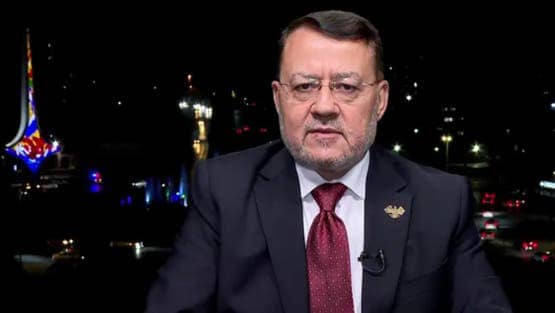Advisor to the Syrian President: The parliamentary elections open a new phase and correct political representation

Ahmad Mufaq Zidan, advisor to the Syrian President Ahmad al-Shara, confirmed in an interview with "Al-Hadath" channel from Damascus that Syria is heading towards "a new phase after a period of closure," referring to the past fourteen years.
Zidan emphasized that the recent parliamentary elections "did not face any criticisms," considering that the formation of the current parliament will fill the gaps in political representation. He stated: "The choice of President Ahmad al-Shara for some figures in the People's Assembly aims to fill the gaps in representation, explaining that many expected decisions will be made after the formation of the parliament."
The Syrian advisor clarified that the legislative role is essential to regulate the work of state agencies, pointing out that "regulating security and executive agencies cannot be done without a legislative council." He also confirmed that "the People's Assembly will decide to grant confidence to any government, especially since the executive and legislative authorities will operate in harmony and integration."
In a significant point, Zidan noted that "this is the first time in 60 years that representatives of all Syrian factions will meet under one dome," considering that "Syria now enjoys unparalleled freedom thanks to the sacrifices made."
On the regional level, the Syrian advisor revealed that "Damascus found in the New York meetings that Israel was not ready to sign the security agreement."
Zidan addressed the situation in Sweida, blaming Sheikh Hikmat al-Hajri, the spiritual leader of the Druze, stating: "The spiritual leader of the Druze, Sheikh Hikmat al-Hajri, sought assistance from Israel to achieve his personal goals." He confirmed that "the state provided all possible facilities to accommodate his group." He concluded his remarks on this issue by saying: "The Syrian memory will not forget the bombing of Damascus at the request of al-Hajri," referring to the Israeli airstrikes on the General Staff headquarters last July.
In a separate matter, Zidan called on the Syrian Democratic Forces (SDF) "to implement the March 10 agreement and close the chapter of bloodshed," considering that "the SDF did not adhere to the agreement it signed with President al-Shara in Damascus, and that it makes its decisions from outside Syria." He described the organization as "an anomaly and represents only 5% of Syrian Kurds."
Regarding international relations, the Syrian advisor viewed that "the relationship with Russia is ongoing and the meetings serve the interests of the Syrians," and he described President Donald Trump's decision to lift sanctions as "a courageous stance."
As for Lebanon, Zidan expressed "full confidence in the integrity of the Lebanese judiciary in ensuring justice for the Syrian detainees there."
This statement comes following Syria's parliamentary elections, the first after the so-called "Assad regime," and amid stalled negotiations with the Syrian Democratic Forces (SDF), which boycotted the elections in Raqqa and Hasakah provinces. U.S. envoy Tom Barak had met with SDF leader Mazloum Abdi in an attempt to bridge differences.
For its part, the Syrian Democratic Council (SDC) - the political wing of the SDF - criticized the elections, considering them not representative of the will of all Syrians. Additionally, Sweida province witnessed joint Syrian-Jordanian talks to devise a plan to resolve the crisis last month, but the higher legal committee in the province, affiliated with Sheikh al-Hajri, announced its rejection of the proposed roadmap.